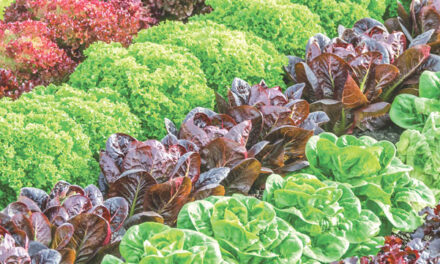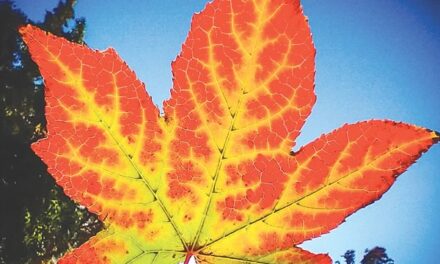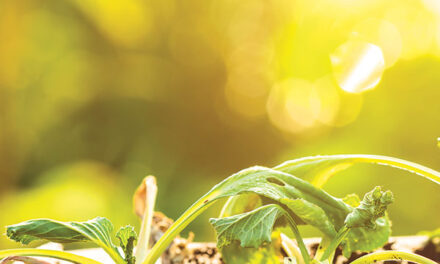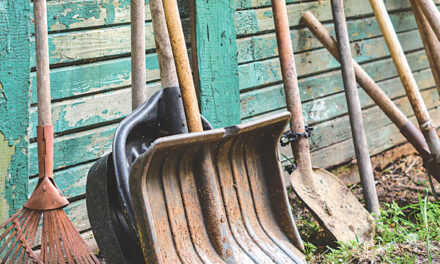A little one whispered in my ear, “Gampa-gampa, can we pull carrots?” In the Sacramento summer, there were no carrots to yank, but the request warmed my heart.
Children and gardening are a precious pair. My granddaughters always want to explore the garden.
They pinch off blueberries and grapes, sift through soil to discover potatoes, pluck lemons and oranges, pull carrots, and are fascinated when I turn the compost pile and insects scurry for cover.
A garden is a living classroom. Children absorb science, discover creatures, and learn ecological concepts and lessons about food and nutrition. The garden inspires curiosity and wonder. It offers a healthy diversion from TV, Minecraft, Roblox, Zelda and the idleness of screen time.
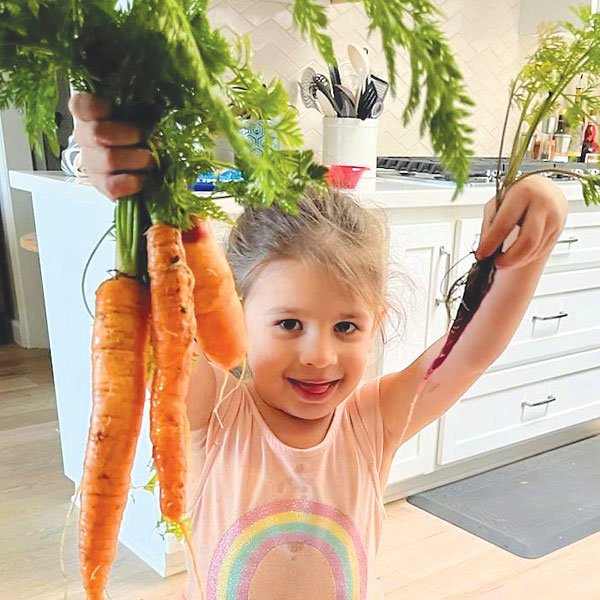
Writer Dan Vierria’s granddaughter Mia shows off freshly harvested carrots.
Outdoors is a bonanza of fragrance, color and taste. Lessons in life cycles and problem-solving pique curiosity. Why is the plant droopy? Why are bees on flowers? Why do plants have leaves? Some questions make us laugh. Others stump us. Kids come at us from different angles.
The beauty of this wholesomeness is that children want to learn and are happy to help. There are no “Eat your peas!” moments until teenage years, when mowing the lawn becomes work. As adults, we guide children with patience and frequent chuckles.
Seeds introduce a fascinating experience. A shriveled, dried-up seed eventually germinates and evolves into a cheery flower. Kids love planting seeds and watching the metamorphosis. Maintaining the plant’s life teaches responsibility and patience.
When too many seeds are sown, rearrange them when nobody is around. Plants with larger seeds—pumpkins, sunflowers, sweet peas—are easier for little hands and limited experience.
Let them write out plant labels and encourage their artistic talents. Keep the seed packets for visual and spelling aids. If the label reads “Zeenyah,” it’s good to go.
Watering enables youngsters to help without too much collateral damage and teaches responsibility. Forget to water too often and the plant dies. Water is heavy. Purchase kid-sized watering cans they can refill and lug about.
Make them feel like indispensable team members. Buy children’s gardening gloves, pruners for small hands and sun hats. Look for these items in bright colors so they are easier to find when discarded. Kids tend to leave things out when finished. But you knew that, right?
Small children will try to eat just about everything they can pick and shove into their mouths. They are rapid learners in the category of what is ripe and what is not. They tend not to repeat the mistake. A green strawberry is a spitter. A shiny red strawberry is an emphatic, “So good!”
Time spent in the garden will stay with children for a lifetime, although dormant periods are normal. As teens they may lose interest, but houseplants tend to revive attention in young adults. Vegetable and flower gardening gathers steam by middle age.
As a lad I spent summers in my grandpa’s fruit orchard and vegetable garden. His dahlias earned county fair blue ribbons.
My grandparents lived next door. Grandpa’s garden was two-thirds of a large lot. He spent all morning in his garden, breaking for lunch, then a nap on a swing hammock, followed by more garden time. He was in bed by 7 p.m. and up at 5 a.m.
One day I ate too many cherries and paid a painful price. I never could get enough tomatoes. Grandpa would pick a beefsteak tomato and lean forward before launching into the monster. The second bite was preceded by a shake from his tin saltshaker. Juice ran like Niagara Falls. Cleanup was a quick wipe from his back-pocket handkerchief.
We hunted destructive grasshoppers and tomato hornworms, and harvested corn. There were never-ending tales. Mostly tall tales, as I think back, but nonetheless entertaining.
Consider including your children, grandchildren, nieces and nephews in gardening activities. It’s fun and extremely gratifying. They will not forget your kindness. The memories are priceless.
Dan Vierria is a University of California Cooperative Extension Master Gardener for Sacramento County. He can be reached at masterg29@gmail.com. For answers to gardening questions, contact UCCE Master Gardeners at (916) 876-5338, email mgsacramento@ucanr.edu or visit sacmg.ucanr.edu. Follow us on Facebook and Instagram: @insidesacramento.




